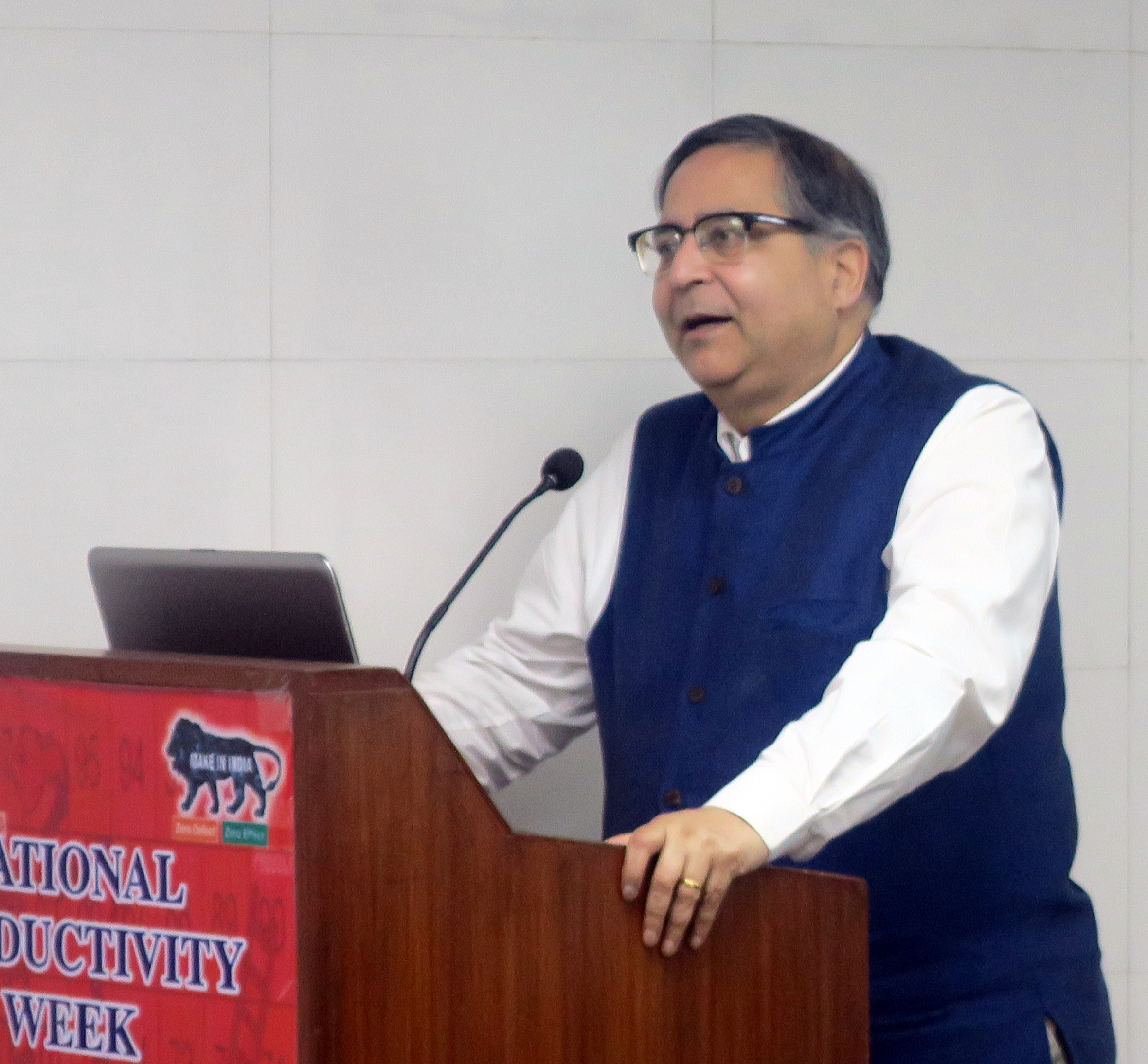
Select Page
The National Productivity Council (NPC) of India organized a conference on Results-based Monitoring (RBM) and Evaluation of Public-sector Programs in New Delhi, 14–16 February 2017. The conference was organized with support from the APO as a national follow-up to the multicountry workshop on RBM for Public-sector Organizations held in June 2015 in Hanoi. The national follow-up program aimed at enabling knowledge transfer on RBM and evaluation to local stakeholders in India.
This three-day conference brought together 85 representatives from different government departments, ministries, and agencies at national, state, and local levels to gain an understanding of RBM and evaluation of programs and projects, as well as productivity-integrated monitoring and evaluation (M&E) frameworks that can be utilized by governments and public-sector organizations for effective, efficient implementation of programs, projects, and schemes.

Dr. T.C.A. Anant, Secretary, Ministry of Statistics and Program Implementation, speaking at the opening session of the conference on Results-based Monitoring (RBM) and Evaluation of Public-sector Programs.
Speaking at the opening session, the conference chief guest and Secretary, Ministry of Statistics and Program Implementation, Dr. T.C.A. Anant highlighted that it was important to incorporate M&E at the planning phase of any program. “This is important to ensure achievement of desired results and systematic monitoring and evaluation,” he said.
RBM is a management strategy in which all actors contribute to achieving the desired results. By focusing on results rather than activities, RBM helps organizations to achieve greater efficiency, effectiveness, and accountability. In the public sector, increased expenditures as well as the emergence of a new range of models for various services like public–private partnerships have resulted in growing demand for M&E of programs and projects undertaken by governments, international donors, and civil society at large.
The process of M&E leads to the identification and introduction of appropriate, timely interventions to result in more productive outputs and outcomes. It is imperative to put in place RBM and evaluation systems for public programs and projects.
Giving details of the role played by the NPC in this direction, Director General Kalpana Awasthi reported that the NPC had recently been involved in M&E of Indian government projects and programs. “The NPC India has drafted a Productivity Integrated Monitoring and Evaluation (PriME) framework as a base to conduct M&E of other governmental programs. The framework needs to be fine-tuned with the assistance of the APO,” Awasthi stated.
The conference concluded with a discussion among a panel comprising Deputy Director (IPMD) Mukesh , Ministry of Statistics and Program Implementation; APO resource person Dr. Shin Kim, Director and Research Fellow, Korea Institute of Public Administration; and Dr. G. Padmanabhan, UN Development Programme, India. All three panelists emphasized the importance of integrating M&E from the project inception phase. The panel also stressed the importance of information and data in M&E and shared their insights on how to design and fit program results into a big result framework, like that of the UN Sustainable Development Goals.
Photos: NPC